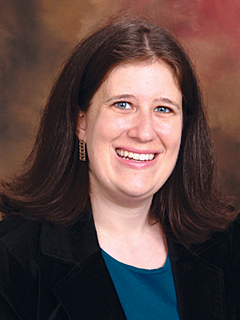
When I lived in Baltimore, a stray, mangy cat adopted us. With proper food and care, Minou had a wonderful few years.
But when he got sick with an osteosarcoma in his leg in 2010, the vet found he also had the beginnings of a mouth-related cancer, a thyroid problem, was FIV-positive, and had a heart murmur and possibly fluid in his lungs.
“But what does that all mean?” I asked.
“It means he doesn’t want to move with you to Chicago,” my vet, a friend, said gently.
I am not trying to equate my cat with someone’s parent, but I was reminded of Minou when reading the dissertation of Mariette Klein on dementia caregivers. Specifically, how hard it can be to know what healthcare decisions to make for a loved one, even if they are four-legged. Minou made it easy on us because it was so clearly his time: It was devastating, but it was clear the right decision was to make him comfortable for a few days before euthanasia.
Comparatively, it’s clear from Klein’s work that long-term care residents and family members agonize over advance care planning and end-of-life decisions. It’s rarely clear-cut, especially when someone has dementia and a long decline.
“The longevity bonus (the blessing of a long life) is often marred by years of disability and suffering and the dying process prolonged,” Klein writes. Her work focuses on understanding the caregiver’s process of decision-making, specifically how difficult it is for someone to understand the dying process, and what quality-of-life means.
Klein, in a personal introduction, recounts the struggle to help her mother-in-law, “whose fondest wish was to remain at home until she died.” However, the mother-in-law’s physical and cognitive function declined to the point where home care was no longer an option, and she moved into assisted living, then skilled nursing.
“She packed her bags three times and attempted to run away although she was not able to figure out how to make the elevator move,” Klein writes. “Often she locks her door and will not let staff into the room. … The move has caused her to retreat from us. She has not spoken to me since moving day … I do not know how long she will remain angry with us but am prepared it may be until the day she dies.” (Klein’s mother-in-law died in late 2012, which she elaborates on in an author’s note.)
Klein’s story isn’t uncommon, as it nails two important issues with seniors and caregivers: One, the anger and frustration on the part of the senior when faced with a failing body, and two, the caregiver’s difficulty in making advance care decisions that won’t make the loved one even more unhappy.
Some of the common treatment options that come up are whether to do artificial nutrition, CPR, IV hydration, respirators, or to administer antibiotics in a late-stage dementia patient. How many family members know that antibiotics in end-stage dementia tend to demonstrate no improvement, or that artificial hydration “prolongs the dying process for weeks?”
Klein recommends two research-based intervention models: CHOICES and PEACE. The former is for medically fragile home-bound older adults who don’t qualify for hospice, and the latter is focused on dementia patients. Both share the goal of increasing communication with the family about end-of-life choices and to decrease the use of aggressive treatment.
What’s also clear is that nursing home staff must respect the wishes of both the resident and family member. In one anecdote, when a senior had Parkinson’s and pulled out his feeding tube, “healthcare workers pushed it back in and restrained him,” recounted the child. “It was awful. I told them to take it out. Staff was mad at me. They said I was killing my father.” In another case, a person says, “When my mother was ill in a nursing home and unable to eat, the staff wanted to put in a feeding tube. I had the POA and said no. They gave me a lot of grief about not doing it.”
Or, in perhaps the saddest comment, “I wish I understood where Mom is in end stage. No one at the nursing home talks about that. My wife and I talk about it every day and try to understand when we need to talk to the doctor about hospice.”
Don’t be afraid of the conversation with your residents’ family members. Involve the social worker, talk to the physician and let them know you, as a long-term care employee, want to keep their loved one comfortable. In acting as a shepherd during the dying process, you will not only relieve suffering of the resident and family, but bolster your facility’s reputation as a place where kind people can be found.
Elizabeth Newman is the Senior Editor at McKnight’s.



